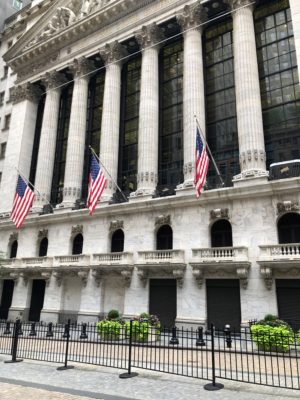Staying the course in uncertain economic times

Although there are no guarantees in life, one thing is certain ”“ the cost of living for Americans continues to escalate daily. Inflation, unemployment and other global factors are causing financial concern and confusion.”¯As the principal owner of Metric Financial, a Simsbury, Connecticut-based investment management and financial planning firm that offers educational sessions and public seminars on creating and preserving wealth for your retirement, I”™d like to offer some tips that will help you stay fiscally afloat while navigating the current economic tide.”¯
The No. 1 question I”™m asked by clients and the general public is, “What should I do to protect my money during a recession?” I challenge all investors to ignore the daily ups and downs of the stock markets during these turbulent times since disruptions in the market are quite the norm.”¯ Just as we saw in the”¯dot.com”¯bust of 2000, the 9/11 tragedy, the financial crisis of ”™08 and the “Covid crash,” stocks rebounded, and we can expect that history will once again repeat itself.
Reacting ”“ or more accurately, overreacting ”“ to current events is a risky business as a person can lose even more money on daily, fluctuating stock prices and having to pay taxes on capital gains as well as high financial adviser fees to process the transaction. It”™s also important to note that there is little correlation between economic activity and stock market returns. The data is mixed on when and how stocks will react to recessions, which are themselves difficult to define.
Good investors need to keep saving, have a plan and let their financial needs drive their investments, not predictions or fears about what financial markets might do tomorrow. Indeed, our research shows that those who buy and hold for at least a five-year period have seen a 91% chance of a positive return on their investments.
One of the recent trends I”™ve seen on the stock market as a result of the current volatile economy is that investors are now trading in their high-priced mutual funds in favor of cheaper Exchange-Traded Funds, or ETFs, which passively track an index, like the S&P 500. ETFs seek to beat the market with their particular stock picks, as opposed to relying on active fund managers. But there is plenty of data to show that such a strategy is in vain.
On the other hand, ETFs have a structure that makes capital-gains distributions rare.”¯This means that ETFs are more tax-efficient, which can have a significant effect on long-term wealth creation for an individual.

Despite the rising interest rates by the Federal Reserve, I encourage people to diversify their portfolio according to their risk tolerance, monitor their investments as they relate to inflation and have a long-term time horizon in which they do not try to “time the market,” which could be financially devastating.
”¯Lastly, work with a financial adviser whom you trust, one who fully discloses any fees involved. My main mission is to educate people on what they are paying for financial planning services as fees can have a huge effect over time. The mission of Metric Financial is to offer investors a fairer fee so that they can keep more of their returns while getting the same or more services. Our primary approach with new clients working with an adviser is to show them how reducing fees can significantly improve their financial picture over time.
For more, visit”¯metricfin.com”¯or call 860-256-5895.